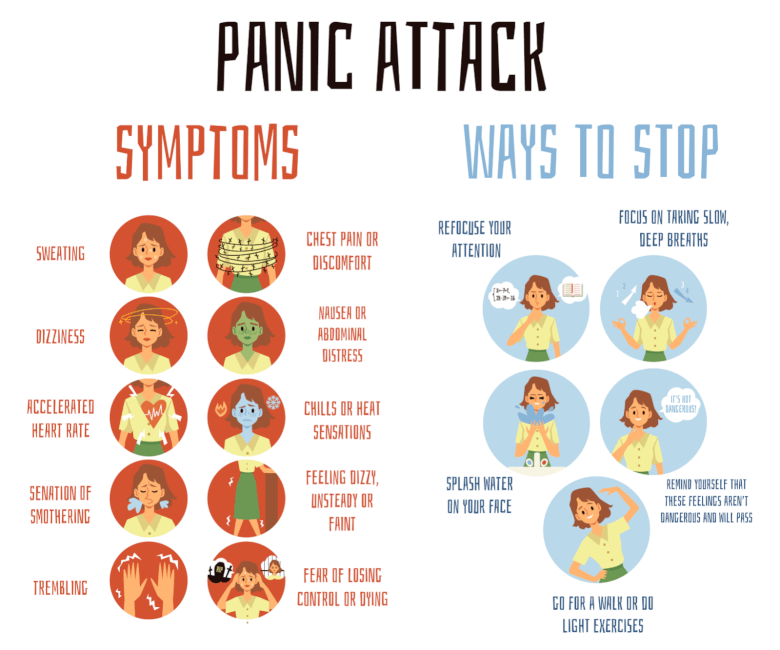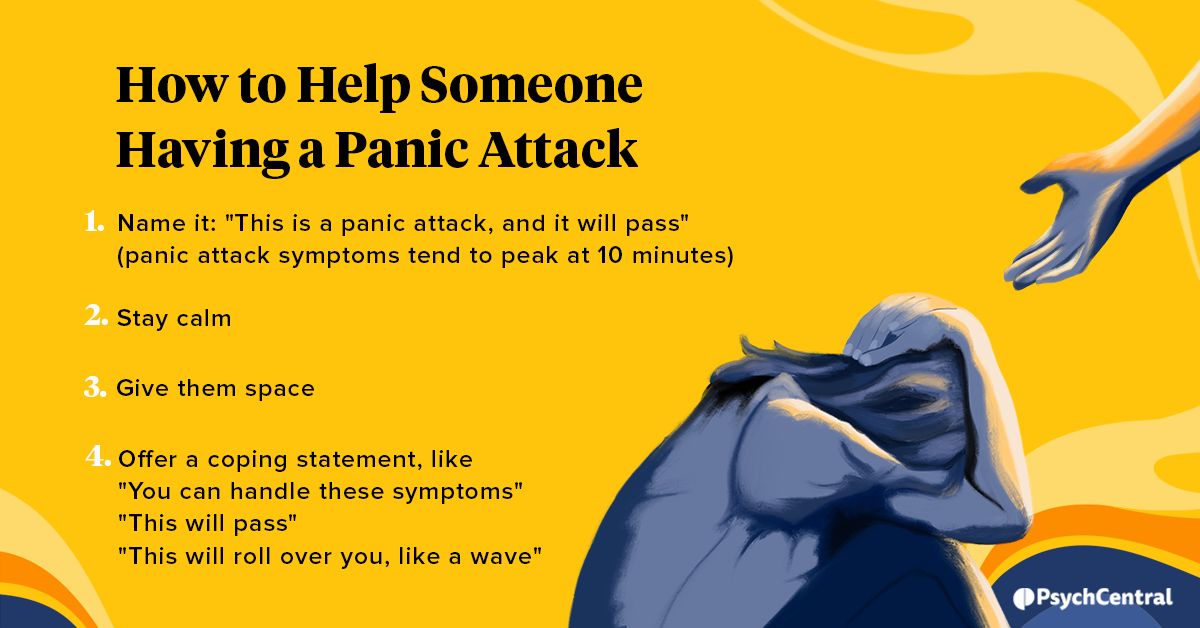Antwort Do panic attacks ever go away? Weitere Antworten – Can panic attacks be completely cured

The truth is that panic disorder can never be entirely cured. 1 However, it can be effectively managed to the point that it no longer significantly impairs your life. One reason why there is no permanent cure is that panic disorder varies greatly from person to person.If you have panic attack symptoms for an hour or more, you may really be having a wave of panic attacks, one after another. There's actually a period of recovery between them, though you may not notice it. The overall effect feels like you're being hit with one never-ending attack. It's rare that this happens, though.Panic disorder is treatable so it's best to get medical help as soon as you can. If you do not get medical help, panic disorder can escalate and become very difficult to cope with. You're more at risk of developing other mental health conditions, such as agoraphobia or other phobias, or an alcohol or drug problem.

Should you just let a panic attack happen : Keep in mind that it's not up to you or the person experiencing the attack to make it end, he said. If someone is having a panic attack, their goal should be to try to “feel a little better” while waiting for the symptoms to subside. “Panic's not a disease,” Carbonell said.
What is the 3 3 3 rule for panic attacks
You can use the 333 rule for anxiety in the moment something triggers you. Just look around to identify 3 objects and 3 sounds, then move 3 body parts. Many people find this strategy helps focus and ground them when anxiety seems overwhelming.
Can a person with panic disorder live a normal life : In time, you could end up pulling back from your usual activities, including working and spending time with loved ones. Panic disorder is very manageable, though — you don't have to live in fear of these attacks. Learning to recognize key signs can help you take steps toward managing your condition.
Generally, if you have 4 or more panic attacks and if you always worry about having another, you have panic disorder. Symptoms of a panic attack may include: Pounding heart.

Some anxiety only fades some and is still pretty constant, but you can learn coping skills to manage and deal with your anxiety in a way that also allows you a fulfilling and productive life where you can feel anxious, but do things the anxious-things any ways. It takes time, but it really can get better.
What happens if you ignore a panic attack
Lastly, it's important to never ignore the symptoms of a panic attack, Smith says. And while panic attacks themselves are not dangerous, the symptoms may mirror other ailments and what you're experiencing may not actually be a panic attack, but rather be a sign of something else like a heart attack.Panic attacks can occur at any time. Many people with panic disorder worry about the possibility of having another attack and may significantly change their life to avoid having another attack. Panic attacks can occur as frequently as several times a day or as rarely as a few times a year.Similar is the 5 5 5 rule where you breathe in deeply for 5 seconds, hold the breath for 5 seconds, and breathe out for 5 seconds. Then, identify five things you can see, five sounds you hear, and five objects around you that you can touch.
:max_bytes(150000):strip_icc()/VWH-ZoeHansen-WhatHappensinPanicDisorder-Standard-96ce888be73942f5a11dcdf25a58911b.jpg)
The prevailing treatment is cognitive behavioral therapy (CBT). A new offshoot of CBT, known as Acceptance and Commitment Therapy (ACT), has also been found effective in treating panic disorder. Psychologist Steven Hayes developed ACT in part as a way to treat his own panic disorder.
Does panic disorder get worse with age : Anxiety disorders don't necessarily get worse with age. But the number of people dealing with them may change across the lifespan.
How often is too often for panic attacks : Generally, if you have 4 or more panic attacks and if you always worry about having another, you have panic disorder. Symptoms of a panic attack may include: Pounding heart.
Do some people never recover from anxiety
It's not that anxiety disorder can't be overcome but that the right work isn't done, or done sufficiently to eliminate anxiety at the disorder level. Because anxiety disorder is caused by specific reasons, unless those reasons are identified and successfully addressed, anxiety at the disorder level will remain.
:max_bytes(150000):strip_icc()/top-symptoms-of-panic-attacks-2584270_FINAL-5bcdfd4d46e0fb0051228ee5.png)
restlessness. a sense of dread or fear. feeling constantly "on edge" difficulty concentrating.During a panic attack, there is significant sympathetic discharge, potentially resulting in vasoconstriction of small coronary vessels and microvascular angina. This process can lead to ischemic damage to the myocardium despite the presence of a normal angiogram.
What’s the difference between a panic attack and an anxiety attack : The main difference is that certain stressors often trigger anxiety attacks, and they may build up gradually. In contrast, panic attacks typically happen unexpectedly and suddenly. Anxiety often causes physical symptoms, such as a racing heart or knots in your stomach.



